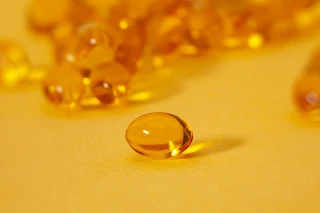Understanding Vitamin D Deficiency

Benefits of Vitamin D
Vitamin D is an essential nutrient that plays a vital role in maintaining overall health. Some of the key benefits include:
- Bone Health: Helps the body absorb calcium, which is necessary for strong bones. A deficiency can lead to conditions such as osteoporosis.
- Immune System Support: Supports the immune system and may reduce the risk of infections and autoimmune diseases.
- Cardiovascular Health: May help lower the risk of high blood pressure and other cardiovascular diseases.
- Mental Health: Low levels are linked to an increased risk of depression. Supplementing with vitamin D may improve mood.
- Cancer Prevention: Some studies suggest it may help reduce the risk of certain types of cancer.
Always consult a healthcare provider before starting any new supplement regimen.
Sources of Vitamin D
There are several ways to get vitamin D from your diet:
- Fatty Fish: Salmon, mackerel, and sardines are high in vitamin D.
- Cod Liver Oil: Excellent source, but be mindful of the dosage due to high vitamin A content.
- Mushrooms: Shiitake and maitake mushrooms contain vitamin D. Amounts vary based on growing conditions.
- Egg Yolks: Good source, but the vitamin D content depends on the chicken's diet.
- Fortified Foods: Many foods like milk, cereal, and orange juice are fortified with vitamin D. Check labels for content.
Sunlight exposure also helps the body synthesize vitamin D. Spending time in the sun can boost your levels.
Daily Intake Recommendations
The recommended daily intake of vitamin D varies by age and life stage. According to the Institute of Medicine:
- Infants aged 0-12 months: 400-1,000 IU/day
- Children aged 1-18 years: 600-1,000 IU/day
- Adults aged 19-70 years: 600-800 IU/day
- Adults aged 71 years and older: 800-1,000 IU/day
- Pregnant and lactating women: 600-800 IU/day
Recommendations are for those with limited sun exposure. If you spend a lot of time in the sun, you might not need a supplement. Consult your healthcare provider for personalized advice.
Risk Factors for Vitamin D Deficiency
- Aging: Older adults have less efficient vitamin D synthesis.
- Limited Sun Exposure: Those in areas with little sunlight or who stay indoors are at higher risk.
- Dark Skin: More melanin can reduce vitamin D production.
- Obesity: Excess body fat can interfere with vitamin D absorption.
- Certain Medical Conditions: Conditions like Crohn's disease, celiac disease, and liver or kidney disorders can impact vitamin D metabolism.
Deficiency can lead to weak bones, increased risk of falls and fractures, and other health issues. Consult your healthcare provider if you're at risk.
Conclusion
Maintaining adequate vitamin D levels is crucial for good health. If concerned about your intake, consider speaking with a healthcare provider or dietitian.


